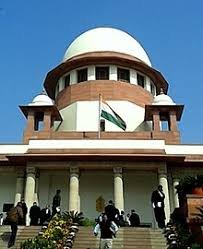The case concerns a protracted property dispute originating from complex family inheritances and a sale agreement. The appellant challenged a High Court decision that dismissed his revision petition regarding an executing court’s order for property delivery. Key legal points examined include the doctrine of merger (where an appellate court’s decree supersedes a trial court’s), the applicability of Section 53A of the Transfer of Property Act, 1882, and arguments concerning inordinate delay in executing the decree. Ultimately, the Supreme Court upheld the High Court’s findings, affirming that the appellate decree governed the matter and dismissed the appellant’s appeal.
(A) Specific Relief Act, 1963, Section 28(1) – Civil Procedure Code, 1908, Section 148 – Civil Procedure – Enlargement of time for deposit of earnest money by executing Court – Challenge as to – Doctrine of merger – Appellant submitted that extension of time amounts to alteration of the decree granted by the Trial Court and therefore, such order passed by the Executing Court is non-est and impermissible in law – It was submitted that the decree holder ought to have approached the Trial Court for extension of time for deposit of earnest money – High Court observed that decree passed by the trial Court had been appealed against and the appellate Court has passed judgment in Appeal Suits only on 6.8.1993 and in the appeals, the appellate Court had modified the decree passed by the Trial Court – Once the decree is modified by the Appellate Court, the doctrine of ‘merger’ comes into effect and therefore, the question of executing the decree immediately would not arise – Even otherwise irrespective of the fact whether there was modification or not, once the decree and judgment passed by the Appellate Court, the decree and judgment of the Trial Court merges with the same – Held that unable to find any fault with these observations of the High Court and the conclusion arrived at by the High Court.
(Para 6 and 7)
(B) Civil Procedure Code, 1908, Section 38; Order 21 – Limitation Act, 1963, Article 136 – Execution of decree – Limitation – Held that objection raised by the counsel appearing for the appellant that the execution petition was beyond the period of 12 years from the date of original decree dated 1.8.1986, cannot be countenanced both on law and on facts – Appellate Court has passed decree and judgment in 1993 – In fact thereafter, the revision petitioner filed the revision before the Appellate Court and that the revision petition was pending before the Court and ultimately the same were disposed of by the common order dated 13.12.2001 – Thus considering, the sequence of the facts, the learned High Court could not find any force in the submission of the appellant that there was an in ordinance delay and on that ground itself, the appeal ought to be rejected.
(Para 7)
(C) Transfer of Property Act, 1882, Section 53A – Transfer of Property – Principle of lis pendens – Revision Petitioner having the knowledge of the pendency of the suit, had entered into agreement with the father of the respondent Nos.1 to 8 – Held that he could not have better and valid right over the rights of the original transferer and in that situation, no recourse could have been taken – High Court rightly observed that there is limited rights of the transferee pendent lite on the principle of lis pendens – Such limited rights cannot be stretched to obstruct and resist the full claim of the decree holders to execute the decree in their favour – In fact, the Courts have deprecated such obstruction.
(Para 8 and 9)
Raju Naidu V. Chenmouga Sundra
Supreme Court: 2025 INSC 368: (DoJ 19-03-2025)






